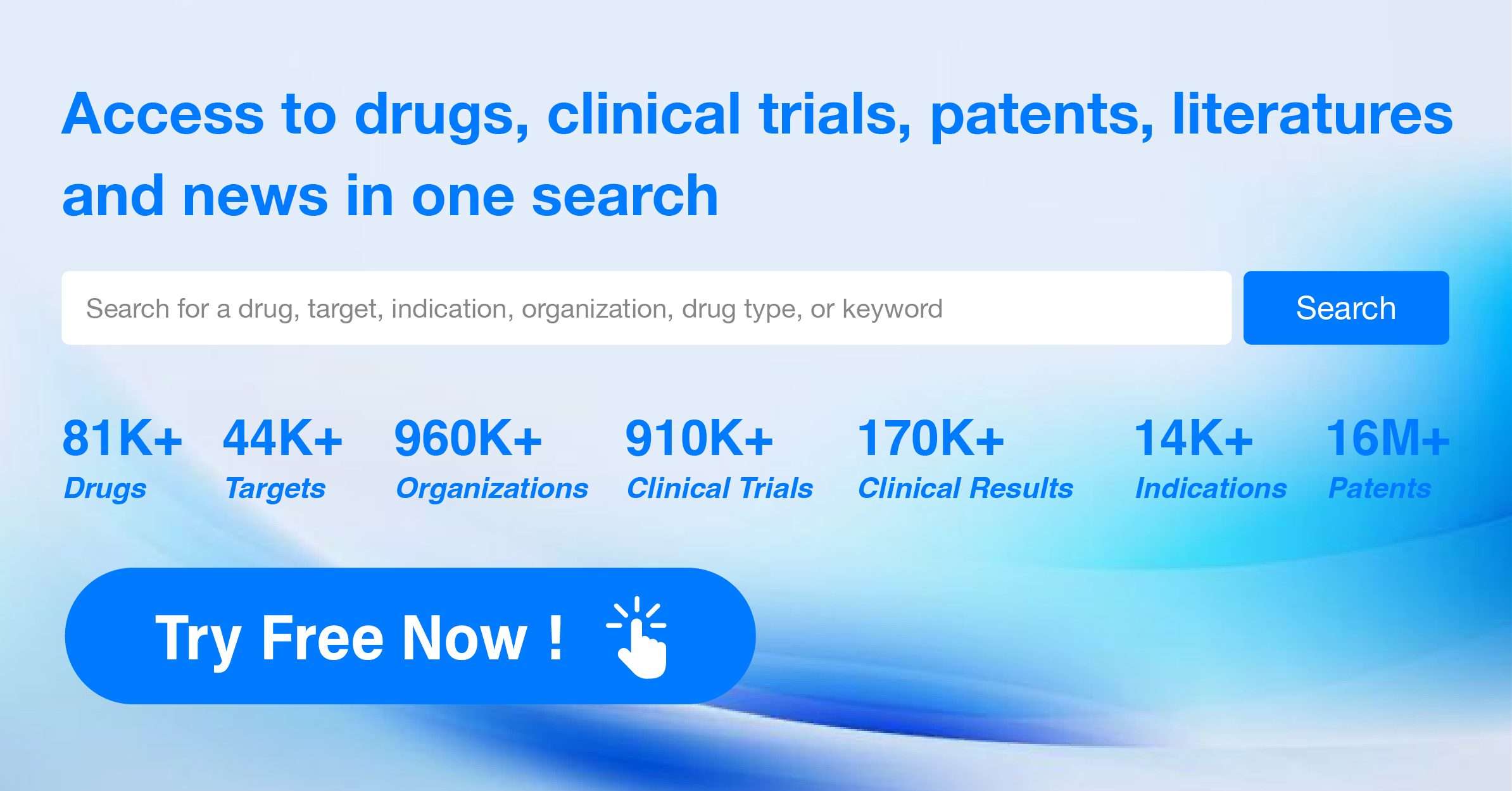Pharma Frontiers: Daily Digest of Global Pharmaceutical News - April 16
1.Fosun Pharmaceutical's MEK1/2 Inhibitor FCN-159 Proposed for Priority Review
On April 15th, the website of the Center for Drug Evaluation (CDE) showed that Fosun Pharmaceutical's MEK1/2 inhibitor, FCN-159, is proposed for priority review. This is for the treatment of adult dendritic cell and histiocytic tumors. Previously, the product had been granted two breakthrough therapy designations by the CDE: (1) for the treatment of patients with histiocytic tumors, and (2) for the treatment of adult patients with persistent, inoperable, or post-operation residual/recurrent plexiform neurofibromas (PNs) associated with Neurofibromatosis Type 1 (NF1). Currently, the drug is undergoing Phase III clinical trials in China for the treatment of symptomatic, inoperable NF1-associated plexiform neurofibromas in adult patients. Neurofibromatosis (NF) is a hereditary tumor of the nervous system caused by gene mutations. Among these, Neurofibromatosis Type 1 (NF1) accounts for about 90% of all cases of neurofibromatosis. Plexiform neurofibromas (PNs) are one of the main manifestations of NF1, with about 20%-50% of NF1 patients presenting with PNs. PNs are a major cause of serious complications and disfigurement in NF1 patients, with symptomatic PNs contributing to an increased mortality rate. Reduction in tumor size can improve pain, appearance, and functional disability; therefore, shrinking tumors is a primary goal in the treatment of NF1. FCN-159 tablet, independently developed by Fosun Pharmaceutical, is a domestically produced oral high-selectivity MEK1/2 inhibitor that can inhibit tumor proliferation caused by aberrations in the RAS pathway. As of today, a total of five MEK1/2 inhibitors have been approved globally, with three of them available in China, namely trametinib, cobimetinib, and selumetinib. According to statistics, in 2022, the sales revenue of MEK1/2 inhibitors within China reached approximately 1.0236 billion Chinese yuan. As of June 2023, the cumulative R&D investment in FCN-159 by Fosun Pharmaceutical amounted to about 357.69 million Chinese yuan (unaudited).
2.Ocumension Therapeutics Announces Success in Phase III Study of Postoperative Inflammation Drug in China, Prepares for Market Authorization Submission
On April 15th, Ocumension Therapeutics announced that its novel drug, OT-502 (DEXYCU, dexamethasone intraocular suspension), intended for the treatment of postoperative inflammation, has achieved its primary efficacy endpoints in a Phase III clinical trial. OT-502 is an innovative, biodegradable, single-injection steroid that releases the active ingredient dexamethasone immediately upon injection to provide anti-inflammatory effects, with continued release over a period of 21-22 days. The drug is biodegradable and does not require removal after treatment. It is designed to offer ophthalmologists an option for a single intraoperative injection for extended-release steroid therapy, which can significantly reduce the patient’s need for postoperative eye drops, thereby improving patient compliance and optimizing the management of postoperative inflammation. Furthermore, the drug simplifies the post-surgical care process for eye patients, providing a better option for postoperative inflammation control.
OT-502 was approved by the FDA for use in the United States on February 9, 2018, and is the first and only single-dose, sustained-release intraocular steroid to receive FDA approval for the treatment of postoperative inflammation. The Phase III clinical trial was a randomized, double-blind, placebo-controlled, parallel-group, multicenter study with pharmacokinetic assessments, with the objective of evaluating the efficacy and safety of the 9% dexamethasone implant in treating inflammation after cataract surgery. Patient enrollment for this study was completed in China in November 2023. The study has now met the pre-specified primary efficacy endpoint, showing a significantly higher proportion of subjects in the dexamethasone implant treatment group achieving anterior chamber cell clearance (ACC grade 0) on day 8 compared to the placebo group, confirming its safety and efficacy in controlling post-cataract surgery inflammation. Based on these results, Ocumension Therapeutics plans to submit a New Drug Application (NDA) for OT-502 in the near future.
3.Roche's Glofitamab, a CD3/CD20 Bispecific Antibody, Achieves Success in Phase III Study
On April 15th, Roche announced the success of its phase III STARGLO study, which showed that the bispecific antibody glofitamab (trade name: Columvi), targeting CD3 on T cells and CD20 on B cells, met its primary endpoint of overall survival (OS) when used to treat patients with relapsed or refractory diffuse large B-cell lymphoma (DLBCL). Patients treated with glofitamab in combination with gemcitabine and oxaliplatin showed a statistically significant improvement in overall survival compared to those treated with rituximab in combination with oxaliplatin. Developed in-house by Roche, glofitamab is a full-length humanized IgG1 bispecific antibody with a 2:1 format (two CD20 binding domains and one CD3 binding domain). In November 2023, glofitamab received marketing authorization from the China National Medical Products Administration.
The now-published phase III STARGLO study was a randomized, multicenter, open-label clinical trial designed to assess the efficacy and safety of the combination of glofitamab with gemcitabine and oxaliplatin versus rituximab plus oxaliplatin in patients with DLBCL who had previously received at least one line of therapy and were not suitable for autologous stem cell transplant. The study's endpoints included overall survival (OS, primary endpoint), progression-free survival (PFS), complete response rate (CR), objective response rate (ORR), duration of objective response, and secondary endpoints of safety and tolerability. The results demonstrated that the glofitamab combination significantly improved patient OS, and its safety profile was consistent with the known safety of each drug individually. Roche will present these study data at an upcoming medical conference.
4.HuidaGene Therapeutics' RNA Base Editing Therapy Granted FDA Pediatric Rare Disease Drug Designation
On April 15th, HuidaGene Therapeutics announced that the U.S. Food and Drug Administration (FDA) had granted the company's miniature dCas13X-RNA base editor (mxABE) therapy the Pediatric Rare Disease Drug designation (PRD) for the treatment of pediatric hearing loss associated with the Q829X mutation in the OTOF (otoferlin) gene. This RNA base editing therapy, designed to treat congenital deafness, had previously received Orphan Drug designation from the FDA in February of this year. Mutations in the OTOF gene can cause dysfunction in the expressed protein otoferlin, resulting in an inability to properly transmit sound stimuli signals from the ear to the brain, leading to deafness. Preclinical research data published in Cell-Molecular Therapy Journal in 2023 demonstrated that the miniature dCas13X-RNA base editor therapy developed by HuidaGene has the potential to restore hearing in children with severe hearing loss due to the Q829X mutation in the OTOF gene. In this study, researchers introduced an enhanced variant of the miniature dCas13X-RNA base editor delivered through an AAV9 variant. This therapy achieved an approximate 80% adenosine to inosine conversion efficiency in humanized OTOFQ829X/Q829X mice and nearly 100% transfection efficiency in inner hair cells. Researchers observed almost 100% of OTOFQ829X expression recovery in the inner hair cells in OTOFQ829X/Q829X mice within 0 to 3 days after birth. Auditory function was also significantly improved, reaching levels similar to that of the wild-type mice. This enhancement lasted for at least seven months.
5.Laekna Therapeutics independently developed LAE102 granted FDA approval for clinical trials as a new drug
On April 15th, Laekna Therapeutics announced via its official Weibo account that its independently developed LAE102 (an ActRIIA monoclonal antibody) has been approved for a new drug clinical trial (IND) by the United States Food and Drug Administration (FDA) for the treatment of obesity. Projections suggest that by 2030, the global number of people with obesity will reach 1.2 billion. During the first quarter of 2024, Laekna Therapeutics also submitted an IND application for the use of LAE102 for the indication of obesity to the Center for Drug Evaluation (CDE) of the China National Medical Products Administration, which was accepted. LAE102 is a monoclonal antibody independently developed by Laekna Therapeutics and targets the novel ActRIIA receptor involved in regulating muscle regeneration and lipid metabolism. In preclinical studies, LAE102 has demonstrated effects of increasing muscle mass and reducing fat. When combined with GLP-1 receptor agonists, LAE102 can further reduce fat and significantly lower muscle loss caused by GLP-1 receptor agonists, making LAE102 a high-quality candidate for weight management by maintaining muscle mass while reducing fat. Blocking the Activin-ActRII pathway can promote muscle regeneration and fat reduction. To maximize the therapeutic potential of targeting the ActRII receptor, Laekna Therapeutics is developing additional candidate drugs—LAE103 is an ActRIIB selective antibody and LAE123 is an ActRIIA/IIB dual-target inhibitor. Both of these antibodies are independently being developed by the company for muscle regeneration and related indications.
6.Yuansong Biotechnology Announces Clinical Approval of Oncolytic Virus Product YSCH-01
Recently, Yuansong Biotechnology announced that its oncolytic virus, a Class 1 new drug titled “Recombinant L-IFN adenovirus injection (YSCH-01),” has been granted clinical trial approval by the Center for Drug Evaluation (CDE) of the National Medical Products Administration (NMPA) in China. It is intended for the treatment of advanced solid tumors, including but not limited to squamous cell carcinoma of the head and neck, ovarian cancer, and non-small cell lung cancer (NSCLC). This product previously received an Investigational New Drug (IND) approval in the United States in December 2023.
According to the press release from Yuansong Biotechnology, "Recombinant L-IFN adenovirus injection" (YSCH-01) is an oncolytic virus product developed based on the "Cancer Targeted Gene-Virus Therapy (CTGVT)" strategy. This strategy involves combining gene therapy with oncolytic virus treatment by inserting an anti-cancer gene into the oncolytic virus. This approach is expected to increase the tumor suppression effect by dozens or even hundreds of times. Preclinical studies have confirmed that YSCH-01 exhibits dual regulatory effects, high safety, and broad-spectrum anti-cancer properties. Existing research shows that YSCH-01 has an innovative multi-mechanism of anti-cancer action and a wide range of indications, exhibiting significant therapeutic effects in at least seven categories of solid tumors, demonstrating strong direct lytic actions on tumors and distal anti-cancer effects. It also prevents cancer through the reliance on long-lasting immune memory NK cells while significantly enhancing the presentation of tumor cell autoantigens, greatly reducing the tumor's ability to evade the immune system. Additionally, it can convert PD-L1 negative tumors to strong positives, providing a theoretical basis for sequential combination therapy with immune checkpoint antibodies. In early investigator-initiated trials (IIT), YSCH-01 has shown promising safety and anti-cancer efficacy, making it a theoretically superior CTGVT product that combines tumor targeting with drug safety.
7.Starna Therapeutics LLC's subsidiary has settled in Johnson & Johnson Innovation Center JLABS, expediting the research and development of mRNA drug delivery technology
On April 12th, Starna Therapeutics LLC, a mRNA-based innovative drug company headquartered in Suzhou, China, announced its official entry into the JNJ Innovation–JLABS@SSF located in South San Francisco, USA. Starna Therapeutics’ US subsidiary will continue to deepen its strategic cooperation with Johnson & Johnson, leveraging the advanced laboratory facilities, professional guidance, and comprehensive ecosystem support provided by JLABS to accelerate the research and development of mRNA drug delivery technology in the field of in vivo cell therapy. The company aims to address unmet clinical needs with more cost-effective treatment methods, benefitting patients worldwide.
mRNA-based cell therapy primarily involves the delivery of mRNA encoding for CAR (Chimeric Antigen Receptors) or TCR (T-cell Receptors) into T cells, where it is translated into proteins. The mRNA does not integrate into the T-cell genome nor duplicate with cell division, which ensures a higher level of safety and lower costs. By coupling antibodies to lipid nanoparticles (LNPs) to create antibody-linked nanoparticle conjugates (Ab-LNP conjugates), Starna Therapeutics is able to produce cell-selective LNPs, which can efficiently target specific subcellular types. This technology shows promising prospects for in vivo CAR T-cell therapy applications.
Starna Therapeutics was established in August 2021 with a focus on extrahepatic targeted delivery technologies. The company has built a core industrial chain that revolves around chemistry, mRNA, and LNP formulation, tackling key challenges in RNA drug development head-on. Based on its mRNA and targeted delivery LNP technology platforms, Starna Therapeutics has a rich research and development pipeline for mRNA vaccines and innovative mRNA therapies. Its RSV mRNA vaccine has already received approval from the FDA for clinical trials.




